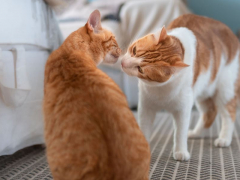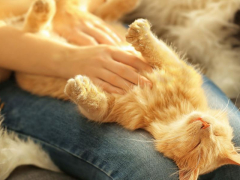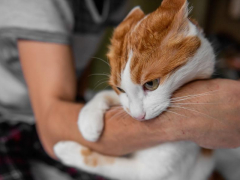
Have you ever wondered, “is my cat depressed”? It wasn’t long ago that people thought of animals as not having many feelings at all, but we now know that cats and other animals feel a wide range of emotions. Cats can feel happiness, excitement, and everything in between, including anxiety, sadness, and depression.
Can Cats Get Depressed?
When talking about emotions in animals, it’s a good idea not to anthropomorphize too much—after all, many emotions like depression are not exactly the same in cats as they are in people. Depression in cats is different from clinical depression in humans.
How To Tell if Your Cat Is Depressed
Depression in cats is sometimes a sign that the cat is experiencing something stressful and, as a result, displaying signs of depression. Some cats that are acting depressed might actually be sick rather than depressed.
If you suspect your cat is depressed, it’s important to do everything you can to get to the root of the problem and try to help your cat feel better.
Signs of Depression in Cats
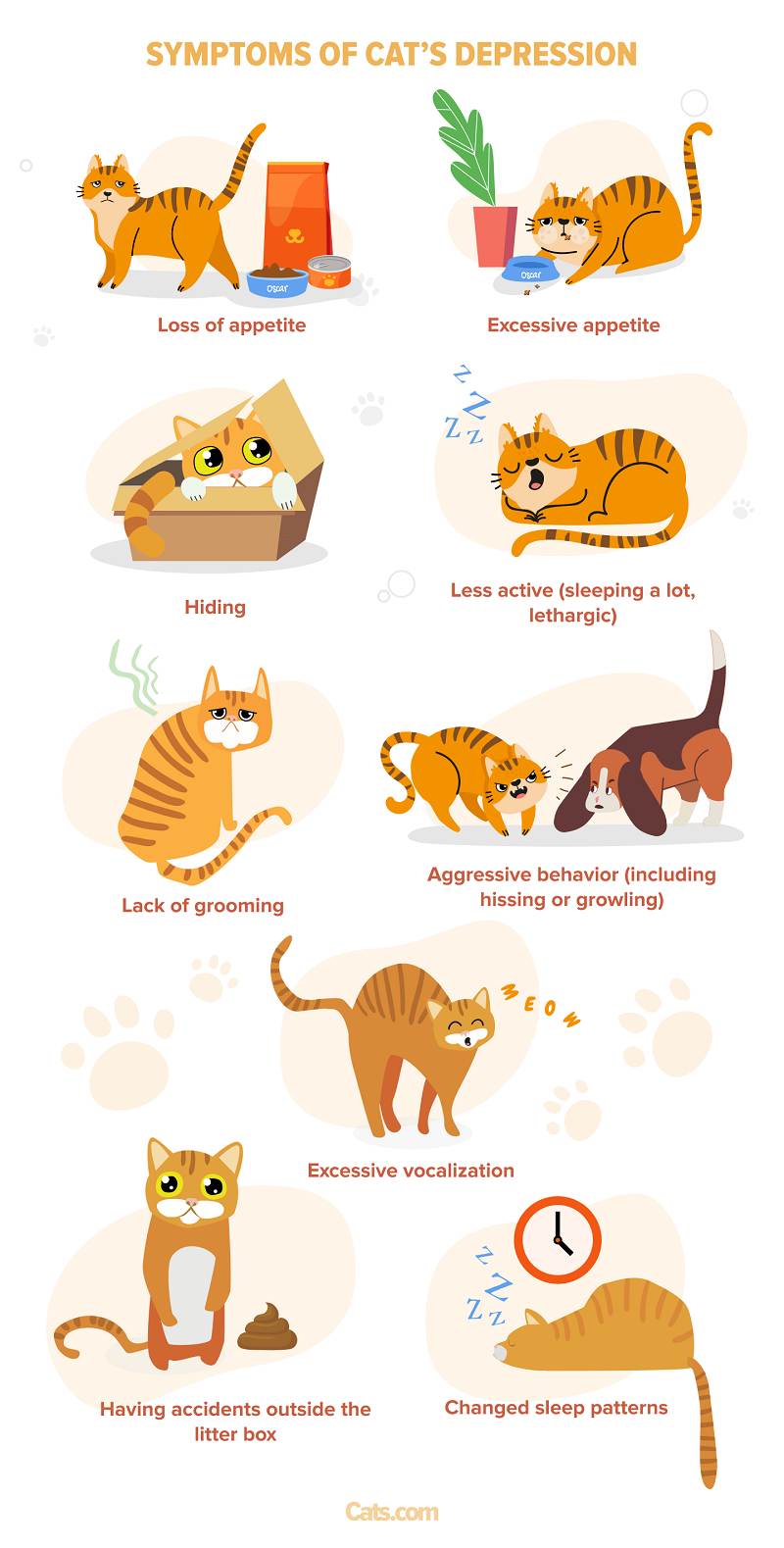
Now that you know cats can be depressed, you might be asking, “How do I know if my cat is depressed?”
Symptoms of depression in cats may include one or more of the following:
- Loss of appetite
- Excessive appetite
- Hiding
- Less active (sleeping a lot, lethargic)
- Lack of grooming
- Aggressive behavior (including hissing or growling)
- Excessive vocalization
- Having accidents outside the litter box
- Changed sleep patterns
Why Is My Cat Depressed?
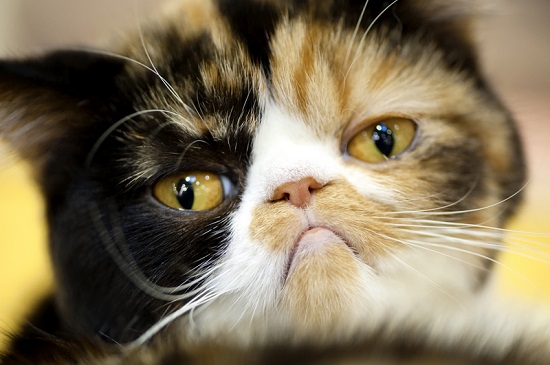
If your cat is acting depressed, it’s important to have her checked out by a veterinarian because symptoms of physical illness can often mimic depression.
Many times, a cat that is acting “depressed” is actually experiencing a medical condition that’s causing pain, nausea or some other type of discomfort. Because signs of depression are also signs of myriad health conditions and diseases, it’s absolutely vital that you have your cat examined by a veterinarian to rule out a medical cause for acting depressed.
If the reason for your cat’s depression is not medical, your vet can help you figure out what might be causing it. Many cats are very sensitive and can become easily stressed by changes in their environment, disruptions in their routine and changes in the family dynamic. Stress can lead to unusual cat behavior that mimics signs of depression.
Another reason some cats exhibit signs of depression is if they are under-stimulated and bored. Keeping cats indoors is recommended for their safety, but staying inside all the time can be boring for cats, which are designed by nature to hunt, pounce, scratch, climb and explore. Some cats that are no given enough opportunities to play, climb and exercise might start to become depressed.
Causes of Feline Depression
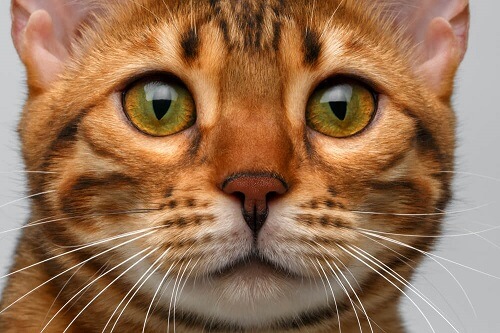
Cats can become depressed when they are feeling upset, anxious or fearful about something in their environment, such as major changes in the household, an addition of a baby, adopting new pets or workers in the home.
Almost anything could cause depression in cats, but some of the most common causes of a sad cat include:
- Health problems (illness, injury or disease)
- Bored or understimulated
- New baby in the family
- New pet in the family
- Family member moves out or in
- Death of human family member
- Cat depression after new kitten
- Death of other pet
- Moving to a new home
- Workers in the home
- Change in schedule/owner not home as much
How To Help a Depressed Cat
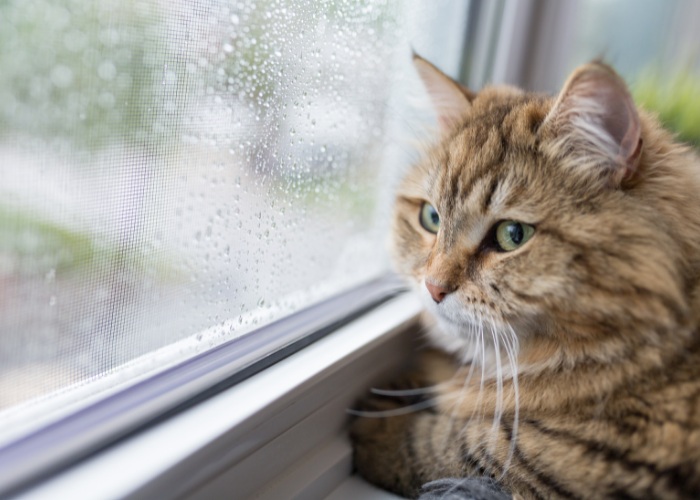
If your cat is acting down in the dumps, the very first thing to do is to bring him to the vet for a complete physical examination. If your cat gets a clean bill of health from the vet, it’s time to think about other reasons your cat might be experiencing stress, and as a result, signs of depression.
Some stressful things, like construction workers in the house, are transient. If your cat is upset about something in his environment that’s only temporary, do your best to help your cat find some peace and quiet, perhaps in a back room with soothing music playing to drown out sounds from the rest of the house.
If new humans or pets have recently joined the family, time is often all it takes for most cats to adjust to the new dynamic. You can help by using cat appeasing pheromones like Feliway, which are available as sprays, collars or plug-in diffusers, can help to calm cats. Giving all pets their own space, feeding separately and keeping enough litter boxes in the house (one per cat, plus one more), can also help.
Some cats get depressed and grieve when there is a death in the family, whether human or other pet. In such situations, treating your cats gently and lavishing your cat with extra attention can help get him thorough his grief.
Otherwise, try to determine what is upsetting your cat, and take some steps to improve the situation. But how do you cheer up a cat? Here are some ideas to help depressed cats:
1. Environmental Enrichment
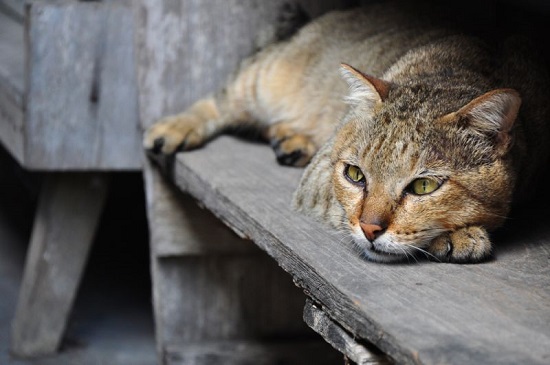
To help alleviate depression caused by boredom, upgrade your cat’s indoor experience by providing climbing trees or perches, placing cat scratchers in various parts of the house, and offering catnip or cat grass treats.
If your indoor cat needs more stimulation and exercise, there are plenty of steps you can take to enrich his environment. Environmental enrichment isn’t just for depressed cats—all cats can benefit from making their home more interesting and engaging.
If you don’t have them already, add multiple tall places for climbing and perching like cat trees or towers. Make sure your cat has plenty of approved scratching surfaces (both horizontal and vertical) and sprinkle a little catnip nearby to encourage your cat to visit and scratch.
Invest in some fun and interactive cat toys like feather wands, electronic toys to chase and swat, and a laser pointer (just don’t shine it in your cat’s eyes). Take 15 minutes twice a day to play with your cat to encourage exercise and engagement. Food dispensing toys can help your cat “work” for his food, simulating the hunting behavior of cats in the wild.
Also Read: Best Cat Toys: Keep Your Cat Fit and Happy With These Irresistible Toys
Finally, safely allow your cat to experience the stimulating sights, sounds and smells of the outdoors with an enclosure. This can be as ambitious as building a multi-leveled “catio” in your yard or as simple as buying a large wire dog crate to use on your patio or backyard.
2. Spend More Time With Your Cat
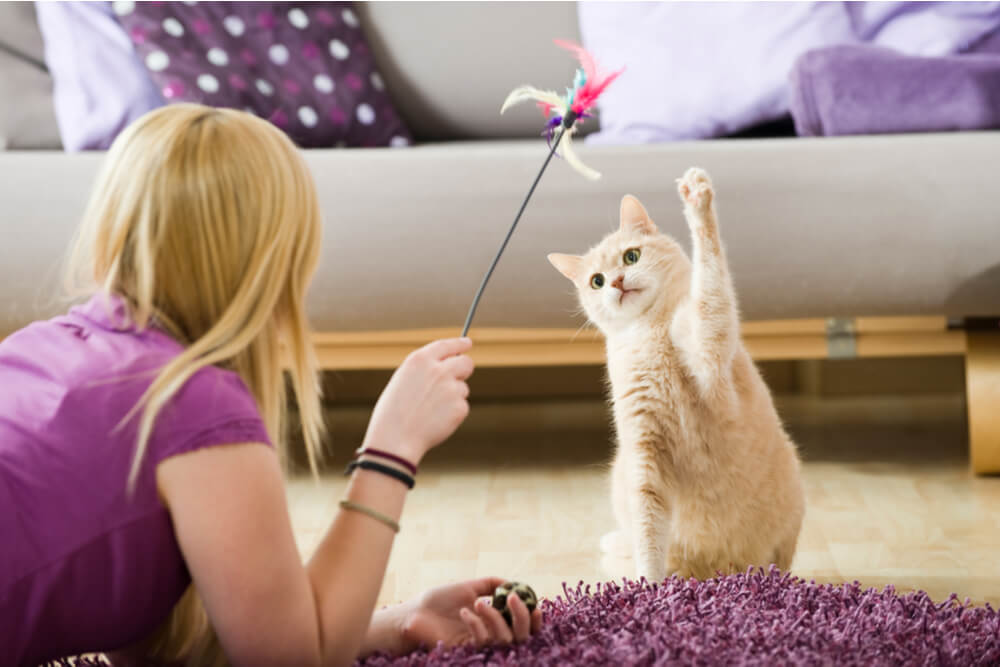
Daily activity and exercise, including play sessions with you, can go a long way to staving off seasonal depression in cats.
Even though cats might seem solitary, they do need attention and company to thrive. If you’re not home as often as you once were, or if your schedule has dramatically changed (for instance, from the day shift to the night shift), you cat might be feeling lonely. Try to spend some more quality time with your cat, doing things he likes, whether it’s cuddling on the couch, playing with favorite toys or brushing his coat.
Some cats might like the company of a friend, although be careful with this because some cats might become even more upset by the addition of a new cat or kitten. You know your cat best. If he is social and seems open to meeting other animals, consider adopting a new feline friend for company.
3. Consult an Expert
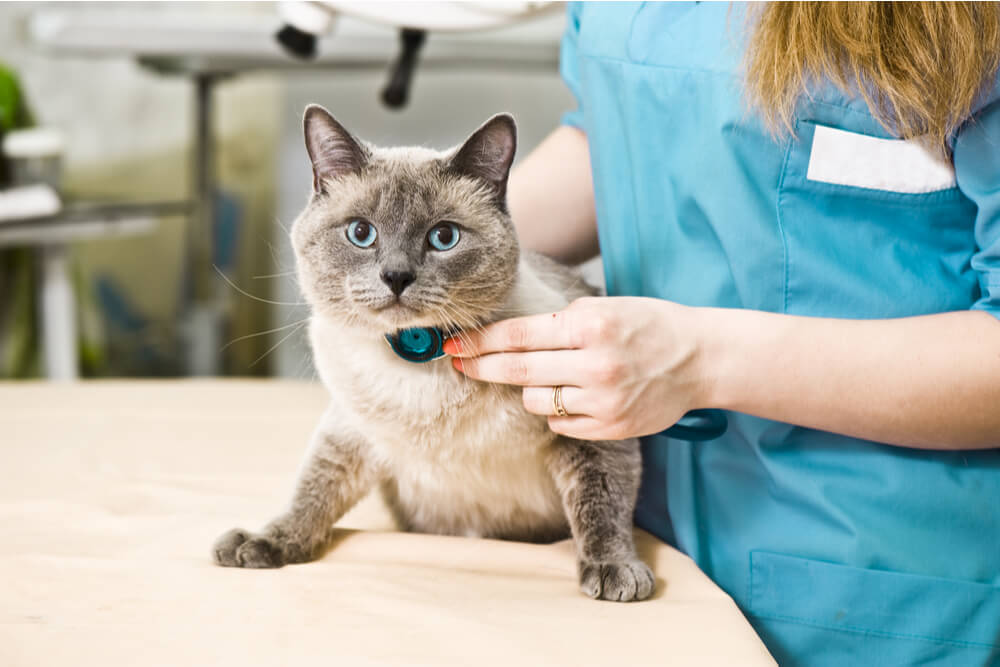
Your veterinarian or a veterinary behaviorist can treat your cat’s depression with medication if necessary.
If you can’t seem to get to the root of your cat’s depression, do not hesitate to reach out to an expert in animal behavior. Your veterinarian can provide a referral to either an animal behaviorist or veterinary behaviorist.
Animal behaviorists have a master’s degree or Ph.D. in animal behaviors. Board-certified veterinary behaviorists are veterinarians who have acquired extra training in animal behavior (look for Dipl. ACVB, which stands for diplomate of the American College of Veterinary Behaviorists, after their DVM title). Either expert can help identify the cause of your cat’s depression, and offer help to make him feel better.
